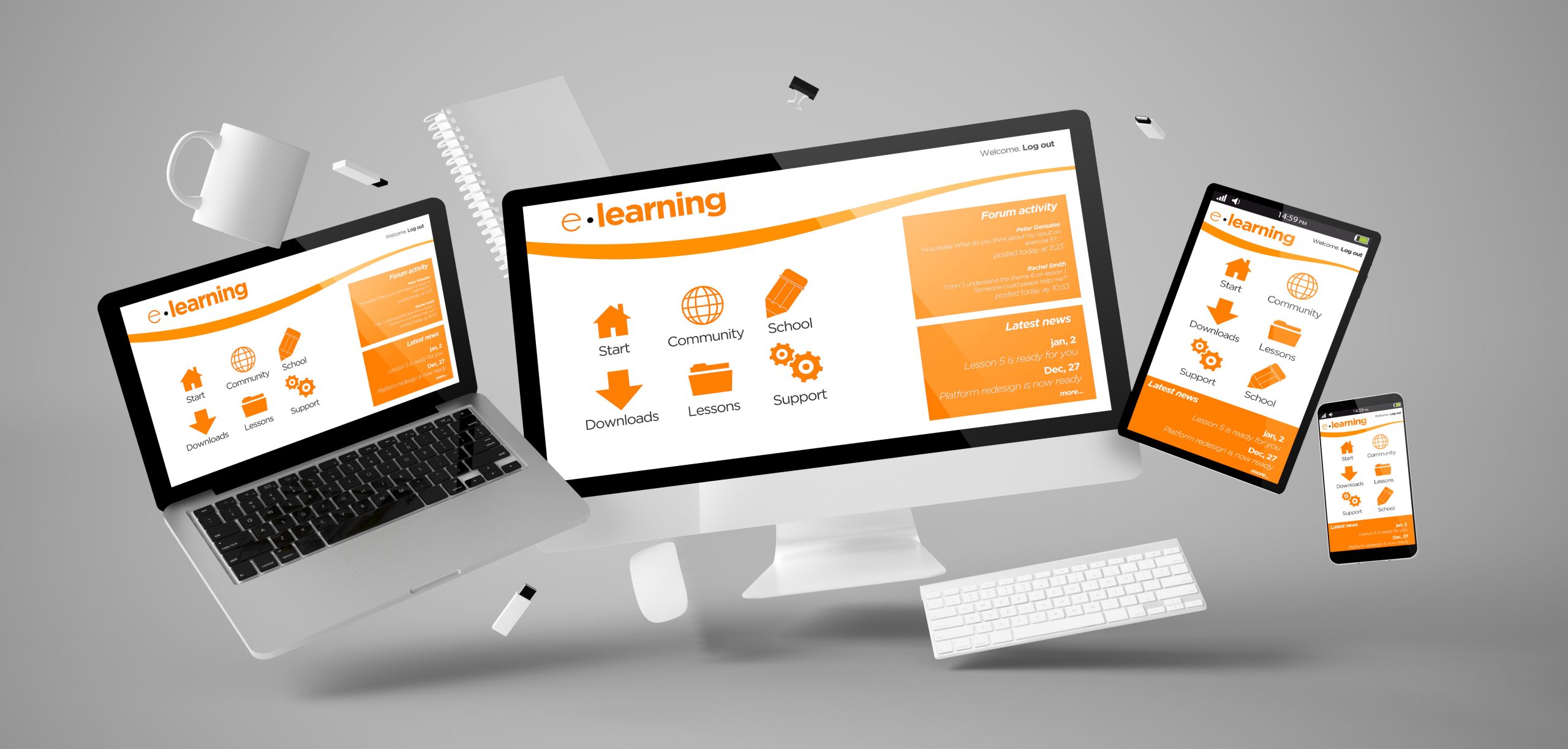Strategic eLearning & Intelligence Solutions
We design impactful learning experiences and intelligence frameworks that help organizations train smarter, adapt faster, and lead with clarity.

Welcome to
The Space of Agnes Elisa
Innovative Learning & Intelligence Solutions for the Modern Organization
At The Space of Agnes Elisa, I bring together over 20 years of experience in criminal and corporate intelligence, as well as more than a decade of expertise in Instructional Design and eLearning Development.
My mission is to help organizations and professionals build more innovative learning systems and make better decisions based on evidence and strategy.
Whether you’re training your workforce, launching compliance programs, or strengthening your organization’s intelligence capabilities, I offer personalized, bilingual services to guide you every step of the way.
eLearning Design and Instructional Consulting Services
Designing High-Impact Learning for the Modern Workforce
I help organizations translate knowledge into scalable, measurable, and engaging learning solutions. Through personalized Instructional Design, I create learning experiences that enhance performance, meet business objectives, and promote professional development.
My services include:
Development of bilingual eLearning courses (English and Spanish)
Instructional Design using tools like Articulate Rise, Storyline, Vyond, and AI-powered learning platforms
SCORM-compliant modules, LMS integration, and onboarding programs

Evaluation plans to measure learning effectiveness and ROI
Custom content development for compliance, ethics, and policy training
Learning needs analysis, curriculum design, and storyboard development
Creation of video scripts, animations, and microlearning solutions
These services are ideal for learning and development departments, nonprofit organizations, universities, government entities, and companies looking to scale learning with clarity and purpose.
Intelligence Analysis and Strategic Consulting
Real-World Intelligence for Risk Management and Decision-Making
As a bilingual Criminal and Corporate Intelligence Analyst, I provide consulting services that help organizations detect risks, prevent fraud, and generate actionable insights. My work is rooted in ethical investigation, data analysis, and strategic intelligence practices.
My consulting services include:
Development of intelligence reports tailored to decision-makers
Threat assessments and red flag detection for corporate and security environments
Strategic consulting in fraud prevention, compliance audits, and data protection
Analysis of criminal and corporate behavior through investigative methodologies
Predictive and prescriptive analysis using open-source and classified data
Training in the intelligence cycle, collection tools, and analytic techniques
Workshops in investigative writing, reporting formats, and team capacity building
These services are ideal for law enforcement agencies, private companies, academic institutions, compliance teams, and NGOs working in security, regulation, or investigative roles.

The Power of Knowledge
How Agnes Elisa Inspires Through Teaching and Research in Criminal Justice and E-Learning
Years of
Experience
Experienced in Teaching and Facilitating Adult Education
Professional
Certifications
in Project Management and Instructional Design
Hours
of Training
to Law Enforcement Professionals
Years of Experience
as intelligence
Analyst and
Criminal Investigator
Prestigious
Associations
International Chapter

Learning and Development
Welcome to the L&D Bilingual Space!
My duties and tasks involve creating compelling, engaging, and interactive learning experiences tailored to various industries’ specific needs. My work is pivotal to Learning and Development (L&D) departments, as it ensures that employees receive high-quality training that improves performance and fosters growth.
Here’s an overview of key responsibilities and how they support different industries.
Projects and Publications
Here are a few highlights of recent and ongoing work:
Each project reflects my commitment to practical solutions, strategic thinking, and impactful education.
Dr. Agnes Elisa is a highly accomplished scholar with a strong focus on Criminology and Education
She actively maintains her expertise by securing prestigious professional certifications, ensuring she remains at the forefront of developments in these dynamic fields

Bachelor
Criminal Justice with a minor in Forensic Psychology

Masters
Criminal Justice / Law Enforcement

Doctor
Education with a minor in Instructional Technology and Distance Education

Postgraduate
Intelligence Studies

Graduate Certificate
Transnational Organized Crime Studies
Let's Connect
If you're seeking support in designing your next learning experience or need expert intelligence consulting for your organization, I invite you to reach out.
I offer tailored solutions that align with your goals and challenges, and I'm always ready to collaborate on projects that create meaningful impact

Frequently Asked Questions
Find answers to common queries about academic research, teaching methodologies, and Agnes Elisa’s work in social justice and criminal justice.
What are the primary responsibilities of a Bilingual eLearning Instructional Designer?
A Bilingual eLearning Instructional Designer is responsible for creating compelling, engaging, and culturally appropriate eLearning content for diverse audiences. Duties include:
- Designing and developing eLearning courses using authoring tools like Articulate Storyline, Rise, or Adobe Captivate.
- Translating and localizing content for multilingual learners to ensure cultural and linguistic appropriateness.
- Collaborating with subject matter experts (SMEs) to gather and refine course content.
- Applying instructional design models like ADDIE or SAM to structure the learning process.
- Integrating multimedia elements like graphics, videos, and interactive activities to enhance learning.
What skills are essential for a Bilingual eLearning Instructional Designer?
Key skills include:
- Instructional Design Expertise: Proficiency in designing engaging, learner-centered content.
- Technical Skills: Familiarity with eLearning tools and Learning Management Systems (LMS).
- Bilingual Proficiency: Fluency in two or more languages to ensure accurate translation and cultural relevance.
- Collaboration: Ability to work with SMEs, developers, and stakeholders.
- Problem-Solving: Adapting designs to address unique learner needs and project constraints.
What is the typical process for creating an eLearning course?
The process often follows the ADDIE model:
- Analysis: Identify the learners’ needs, objectives, and content requirements.
- Design: Develop a blueprint, including learning objectives, activities, and assessments.
- Development: Build the course using eLearning tools, incorporating multimedia and interactivity.
- Implementation: Upload the course to an LMS or platform and ensure it functions properly.
- Evaluation: Collect learner feedback and analytics to improve the course.
How does being bilingual enhance an eLearning Instructional Designer's effectiveness?
Being bilingual enables designers to:
- Create inclusive and culturally sensitive content for a global audience.
- Translate and localize training materials while maintaining instructional integrity.
- Communicate effectively with multilingual teams and stakeholders.
- Adapt designs to address linguistic nuances and cultural differences, ensuring relevance and engagement for all learners.
What challenges do Bilingual eLearning Instructional Designers face, and how can they overcome them?
Challenges include:
- Maintaining Consistency Across Languages: Ensuring the same quality and instructional intent in all translations.
- Solution: Use translation memory tools and collaborate with professional linguists.
- Cultural Differences: Adapting content to suit the cultural context of learners.
- Solution: Research and include culturally relevant examples and scenarios.
- Technology Limitations: Navigating LMS restrictions or tool compatibility issues.
- Solution: Test content on various platforms and devices to ensure accessibility.


Insights from Agnes Elisa
Explore thought-provoking articles on education, e-learning, social justice, and more

How to Build a High‑Performing Learning Culture in 2026 (A Step‑by‑Step Guide for HR & L&D)

New Year, New Team Potential: 5 Science‑Backed Strategies to Transform Your Workforce in 2026”

Designing Courses for Learning in Motion: UX + Instructional Design Tips

The Psychology Behind Mobile Learning Retention

📢Best Practices for Creating Employee-Centric Learning Paths

